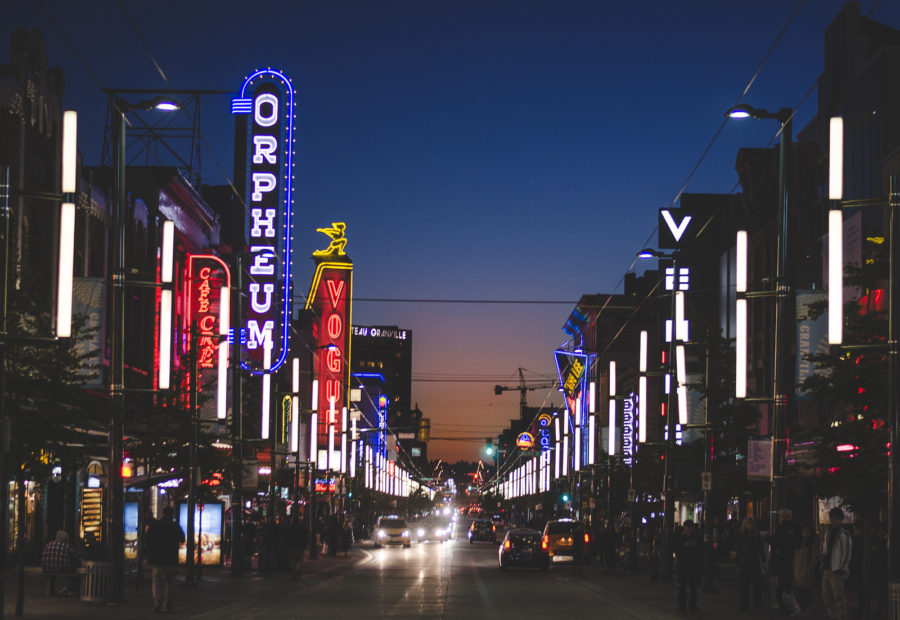Serena
Some dude wrote a long book about the history and origins of consumerism and was kind enough to distill it into an interesting several-page article. In my view, the long history of moral prohibitions against the accumulation of stuff has a curious contemporary manifestation, in which a certain class of consumers is encouraged to demonstrate its values through few, but purportedly conscientious purchases of ethically sourced and produced (and more expensive) items and services. In other words, the stuff that once would have branded us excessive or immoral can now be purchased precisely to demonstrate our restraint and conscience. Odd turns…
David Kroman at Crosscut made a trip east of the Cascade Curtain to talk with Trump voters, who turn out, in fact, generally not to be the “forgotten, white, working-class” on whom most major media outlets and pundits have pinned the election (h/t The Evergrey).
Speaking of Trump voters, if anyone else needs some great resources on talking with family or friends about the election, The Opportunity Agenda compiled several great resources in one handy article.
BBC shared a series of some of the finalist animal photos of 2016 for its People’s Choice Award. I am not an animal person, honestly, but yes, sometimes you just need to marvel at wildlife.
Kristin
Only one in five Americans live in rural areas, but American institutions of democracy—the Electoral College, the Senate, the House, even for a long time state houses—give rural voters disproportionate political power.
Now that “one person, one vote” is the law in state houses, maybe states and cities can promote progressive ideas like worker cooperatives and participatory budgeting.
Financial markets are eating the American economy:
The financial sector—including everything from banks, to hedge funds to mutual funds to insurance to trading houses—represents around 7% of the economy. Yet it creates only 4% of all US jobs, and takes 25% of all private sector profits. While a healthy financial system is crucial for growth, research by numerous academics as well as institutions like the Bank of International Settlements and the International Monetary Fund shows that when finance gets that big, it starts to suck the economic air out of the room – and in fact, the slower growth effect starts happening when the sector is half the size it is today in the US.
77 percent of Americans want to increase income taxes on income over $250,000. But the Trump tax plan would do the opposite, giving the biggest tax cuts to the biggest earners: a millionaire a tax cut of $317,000.
Maria Popova on CS Lewis’s poignant and timely thoughts on democracy.
Eric
I think Joel Connelly’s recent piece on the election’s disastrous results (for Democrats) in Washington deserves more attention. With all eyeballs on Trump, it’s gone largely unnoticed that state democrats got hammered in the legislature and at the local level. It does seem like the party apparatus is not working well.
No one else around here is going to write about the Seahawks, so I’ll take this moment to note that wide receiver Doug Baldwin has become an articulate and forceful spokesperson for police reform. His agility is a thing to behold on Sundays, and this makes the game all the more fun to watch. Also, I didn’t know that his dad was a cop.
JP Sears is a genius. Not only did he get me to laugh about Standing Rock, but in 6.5 minutes he manages to provide maybe the clearest summary I’ve yet encountered. I highly recommend watching his latest video.
Keiko
David Robert’s thoughtful and comprehensive look at the election is the best analysis that I’ve read. (Plus this article is packed with hyperlinks that will keep you reading informative political pieces all weekend long.) Roberts shows how you can’t attribute Trump’s win to one issue; everything mattered. He then dives into the “everything.” Roberts debunks myths about identity politics and explains how all politics is identity politics and when you turn away from identity politics, you recenter rural white voters and view the interests of other demographics as “suspect.” I also appreciated his input on how discussions of racism get derailed by the idea of “racist” as a binary, something one is or isn’t (Robin DiAngelos good/bad binary):
So racist and sexist biases are rampant in America. Racist and sexist outcomes are rampant in America. But apparently there are very few racists or sexists in America. We just perpetuate systemic racism and sexism by accident. Oops.
Roberts also highlights the media’s empathy toward rural and small-town whites and lack of empathy toward all different kinds of people (i.e., black working class families, Muslim families):
What American mainstream pundits often cannot see is that the latitude they extend white voters—“they know not what they do, they’re good people at heart, they’re just hurting”—is the essence of white privilege.
Such latitude is not offered to other groups. Black people protesting police violence are offered no forgiveness from pundits because they’re “just hurting.” The occasional violence or extremism at those protests is never waved away as an accidental byproduct of good intentions. The US media did not parse the words of Black Lives Matter, seeking the most charitable interpretation. But they’ll do a fawning profile of angry white racists if they so much as put on a suit.


Comments are closed.